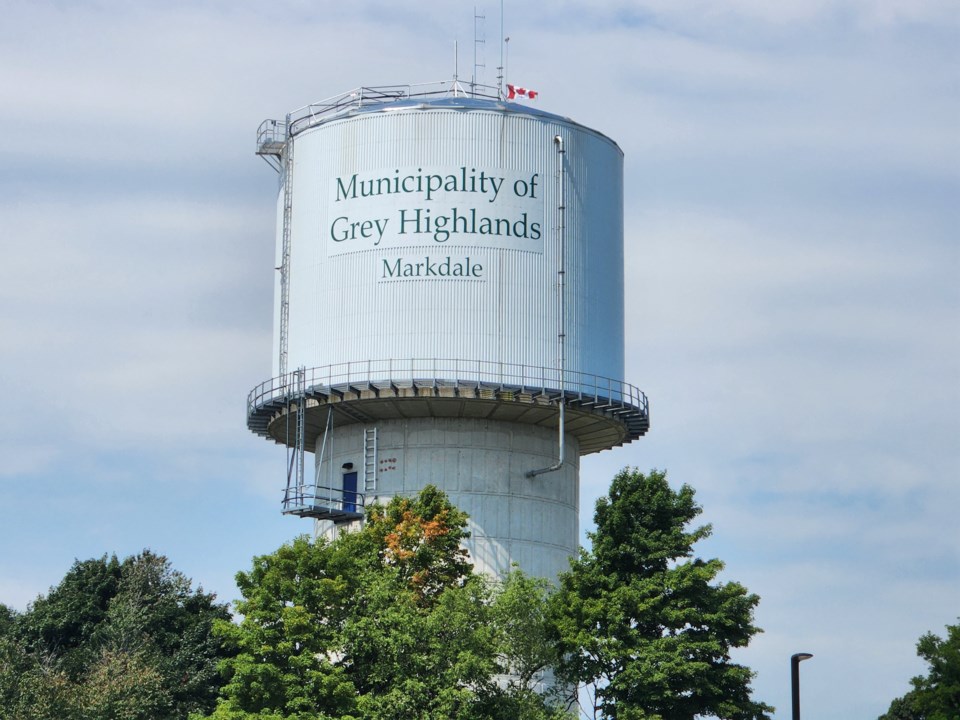Grey Highlands council has approved a new water and sewage servicing allocation policy for the municipality.
Council followed a rocky road to finally approve a policy that was acceptable to a majority of its seven members. At its meeting on Sept. 18, council received and debated the proposed allocation policy that staff researched and prepared over many months. The discussion took plenty of twists and turns and required multiple resolutions, amendments, votes and finally a reconsideration to bring the debate to a close.
Grey Highlands currently has limited capacity in some of its systems. The municipality is working on projects to expand capacity, but in the interim proceeded with the development of the allocation policy to ensure that service allotments to developers are handed out in a fair and transparent manner. Allocation policies are common in municipalities across the province.
A morning discussion on the proposed policy stretched more than 90 minutes and ended with council defeating the entire policy in a 3-3 vote. Deputy Mayor Dane Nielsen and councillors Paul Allen and Joel Loughead voted in favour, while Coun. Nadia Dubyk had departed the meeting before the time of the vote.
The defeated motion included the standard clause to receive the report, which left the entire matter in procedural limbo. Immediately after the vote, Mayor Paul McQueen declared a lunch break and council recessed for just over 30 minutes.
After the recess, Coun. Tom Allwood moved a motion to reconsider the issue in order to bring the item back to the table for further debate. Council approved the reconsideration unanimously and the debate was back on.
During the discussion on the policy, the two biggest points of contention were a clause in the policy that would see service allocations awarded to developers potentially expire after four or six years – depending on the size of the development – if their projects did not use the allocations. Essentially, this would be a use-it-or-lose it clause.
The other disputed clause revolved around the threshold required for a servicing allocation to be renewed if it was on the verge of expiry. The policy drafted by staff called for renewal of an allocation to be permitted if 80 per cent of the project’s building permits had been issued at the time of the request for renewal. Council, however, was split on whether that number should be 70 or 60 per cent.
McQueen and Allwood argued that the expiration clauses in the policy should be removed and could be handled by the municipality at the development and/or subdivision agreement stage of a development. Allwood said if a developer had gone through the entire process and paid the securities for their project their servicing allocation should not be in danger of one day expiring.
“It should be irrevocable if those conditions exist,” said Allwood.
Other members of council said taking out the expiration clauses would essentially gut the heart of the policy. They noted that the whole point of the policy was to encourage developers to proceed with their projects or risk losing their allocations.
“To approve this takes out the teeth of the whole premise of the allocation policy,” said Nielsen.
Allen also pointed out that the policy included clauses for developers to renew their allocations fairly easily.
“In an ideal world, it would be nice if an allocation didn’t expire, but we’re dealing with limited capacity,” said Allen. “It can be renewed fairly inexpensively.”
Andrew Payne, the municipality’s manager of planning, also said sunset clauses are routine across the province in such policies.
“It is a standard practice across the province to have what they’re calling 'use-it-or-lose-it' policies,” said Payne.
An amendment to remove the expiration clauses was defeated in a 4-2 vote with only McQueen and Allwood in favour.
On the 80 per cent threshold recommendation in the policy, Coun. Dan Wickents suggested the number be lowered to 70 per cent. Earlier in the day, two local developers had spoken to council during the open forum portion of the meeting and suggested they supported a 60 per cent threshold. Wickens suggested 70 per cent to meet in the middle. However, 70 per cent was not supported by council and the number was reduced to 60 per cent in the motion that came before council, which was subsequently defeated.
Later, after reconsideration received approval, Nielsen moved an amendment to change 60 per cent to 65 per cent in an effort to compromise on the matter and the amendment was approved in a 5-1 vote with McQueen opposed.
Although it took a circuitous procedural route, the original motion - with the change to 65 per cent - came back before council for a vote and was accepted 4-2 with Allwood and McQueen opposed.
Municipal staff will now prepare the necessary bylaws to adopt the new policy.
